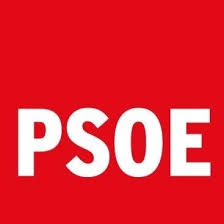Will the Unitary Patent project become operational on 1 December 2017? The UPC Preparatory Committee has warned this date ‘is conditional and provided with the clear disclaimer that there are a number of factors that will dictate whether it is achievable.’ But for supporters of the UP and UPC, developments are encouraging. Crucial ratification procedures in Germany and the UK appear to go smoothly. A Scottish independence referendum may be a problem for UP prime minister Theresa May, but not for the UP system. Even in Spain, which has long been a fierce opponent of the Unitary Patent and Unified Patent Court, support for the system is growing.
United Kingdom
In the UK, the UPC Protocol on Privileges and Immunities (PPI), that still has to be approved as part of the ratification procedure of the Unified Patent Court Agreement, sat in parliament for 21 days without opposition. An early day motion of UKIP MP Douglas Carswell objecting to the UPCA failed to get any support, and in upcoming debates in both houses of parliament on a statutory instrument to implement the PPI no opposition is expected either.
Last month Kevin Mooney, chairman of the Drafting Committee for the Rules of Procedure, said UK ratification of the UPCA would happen at the end of March.
Scottish first minister Nicola Sturgeon’s announcement yesterday, that she wants to hold a second referendum on Scottish independence, won’t change that. According to Dr. Luke McDonagh of the Law School at City University London, Sturgeon’s timing is excellent: ‘Legally, PM Theresa May can refuse to agree to the referendum. Politically, it will be very hard for her to do so, as that would certainly inflame tensions with the Scots, and boost nationalism. What will be interesting is the timing of the referendum. Sturgeon wants it before Brexit occurs i.e. while the UK is still in the EU, and May would prefer it to occur after Brexit (…). It is a clever political strategy from Sturgeon: PM May has so far pursued a hard Brexit strategy, with little thought for the regions, and it may now be necessary to compromise in order to keep the Scots within the United Kingdom.’
 Sturgeon’s ambitions with Scotland will not create new problems for the Unitary Patent system, according to McDonagh: ‘The possible Scottish referendum does not really complicate UPC matters at present. The vast majority of UK patent litigation takes place in London within the courts of England and Wales. The Scots legal system has always been a separate one. Everything to do with the UPC, including the courts themselves (Local and Central divisions), is London-based. Presumably even if the Scots left the Union, the remaining nations of England, Wales and Northern Ireland will constitute the state that will inherit the UPC. The UK designation of the EP would no longer apply to Scotland, and neither would UP jurisdiction.’
Sturgeon’s ambitions with Scotland will not create new problems for the Unitary Patent system, according to McDonagh: ‘The possible Scottish referendum does not really complicate UPC matters at present. The vast majority of UK patent litigation takes place in London within the courts of England and Wales. The Scots legal system has always been a separate one. Everything to do with the UPC, including the courts themselves (Local and Central divisions), is London-based. Presumably even if the Scots left the Union, the remaining nations of England, Wales and Northern Ireland will constitute the state that will inherit the UPC. The UK designation of the EP would no longer apply to Scotland, and neither would UP jurisdiction.’
Germany
The German parliament, the Bundestag, approved ratification of the Unified Patent Court Agreement and amendments to the German patent law on 9 March 2017.
The drafts will now go to the Federal Council, the Bundesrat, where they will be discussed in the Legal Affairs Committee on 15 March. According to German Rechtsanwalt Ingve Björn Stjerna, a vote on the drafts will likely be held on 31 March or 12 May 2017. After countersignature by the German government and certification by the president, the acts will be published in the Federal Law Gazette.
Meanwhile, legislation to enable Germany to ratify the Protocol on Privileges and Immunities of the Unified Patent Court (PPI) was approved by the Bundesrat and sent to the Bundestag on 9 March.
Germany is expected to postpone the final formal step, the deposit of its instrument of ratification with the EU Council, until August. If the UK has ratified the UPCA by then, it means the German deposit will trigger the start of the Unitary Patent system and the UPC and the Unitary Patent will launch on 1 December 2017.
Spain
 In Spain, the socialist opposition party PSOE has requested the minister of Economy, Industry and Competitiveness to appear in the Economy commission of parliament and ‘explain the position of the government concerning the enhanced cooperation between EU member states to establish a European Unitary Patent’.
In Spain, the socialist opposition party PSOE has requested the minister of Economy, Industry and Competitiveness to appear in the Economy commission of parliament and ‘explain the position of the government concerning the enhanced cooperation between EU member states to establish a European Unitary Patent’.
Last week, the Spanish parliament adopted a non-binding motion of the PSOE, requesting the government to reconsider joining the Unitary Patent system. Only the representatives of the Popular Party, which runs the minority government, voted against the motion. According to PSOE MP Patricia Blanquer, it is detrimental to Spain to stay outside the UP system.
For regular updates on the Unitary Patent and the Unified Patent Court, subscribe to this blog and the free Kluwer IP Law Newsletter.
________________________
To make sure you do not miss out on regular updates from the Kluwer Patent Blog, please subscribe here.



I will believe the stay of UK within the UPC the day I will see it. This is by no way certain.
Even if one disregards Opinion C 1/09 of the CJEU, the UPC is strictly reserved to members of the EU. Telling that an action by the administrative committee will allow such a stay is at best wishful thinking. It would simply mean reviving EPLA in a different form, and if there is one thing which the CJEU did not agree with is that. And a loosing party will find a way to go to the CJEU.
Not only there is a problem with the presence of a non EU member, but how to enforce in UK a judgement of the UPC taken in a member state of the EU is a second one for which I fail to see any solution yet. It is not just a technicality, but a real problem. And the other way is again true. How to enforce a judgement taken by a local division in UK or by the branch of the central division in London is another question for which I have not yet seen any solution but incantations.
That all the proponents of the UPC, especially those from the island across the channel do not want want to see lucrative work escaping them is understandable, but this is not a reason to push through the UPC with UK in it.
When one realises the difficulty in disentangling the UK participation to the European trade mark agreement, it appears foolish to open a second front at the level of patents.
I am neither for nor against the UPC, but claiming it is good for European Industry or SMEs is nothing more than wishful thinking and a fig leaf to cover those who will profit from the UPC, i.e. firms, European or not, with very deep pockets.
By the way, have all the proponents of the UPC gave a thought to the reason why Poland is refusing to ratify the UPC agreement? I take bets that the Czech and Slovak republic will follow. That Portugal has ratified and Slovenia will do, is simply due to the fact that an arbitration centre will be opened in Lisbon and Ljubljana.
Why did the Commission envisaged at a time the possibility to create a litigation insurance for SMEs, whether to support them when they are attacked, or when they want to protect and enforce their IP rights? The answer is pretty obvious.
A minimum of honesty would require that this continuing display of wishful thinking about the UPC stops immediately.
The continuous line of hypocrisy has been gone over a long time ago. Enough is enough.
There still seems to be much speculation and uncertainty, even this close to the launch date.
What if Scotland leaves the UK, but becomes an EU member? Could there be a case for the UK’s UPC moving from London to Edinburgh? Clearly Scotland on its own could not justify a Central Division, but depending upon any independence negotiations, there may be opportunities there to provide jurisdiction for UPC in (part of) the (current) UK. Presumably any discontinuity in Scotland’s EU membership could impede such possibilities, but fundamentally Scotland has a stake/share in the UK’s UPC involvement. Theoretically at least, Scotland could potentially provide a continuity of jurisdiction for the UP in part of the UK. Whether there could be any arrangement for mutual extension of rUK and SCO patents seems to be entirely speculation at this stage, but doesn’t seem implausible.